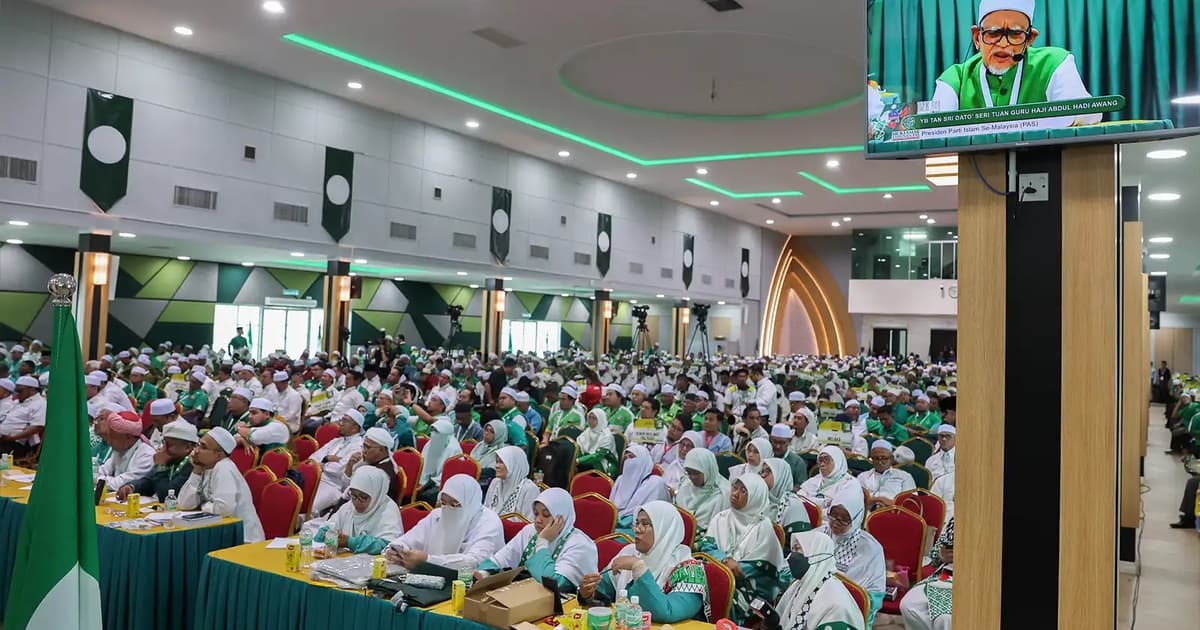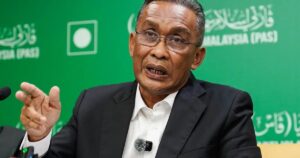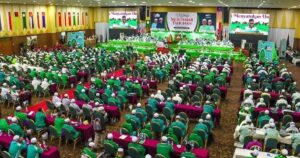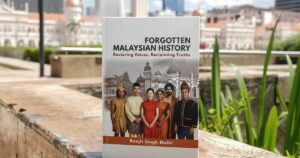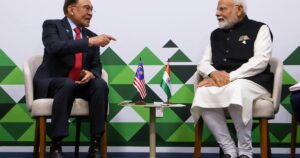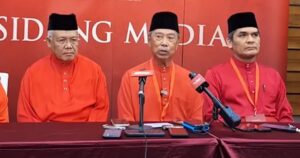
As PAS closed its muktamar (general assembly) last Tuesday with a show of confidence, the party with the largest number of MPs flexed its muscles to show it was ready to lead Perikatan Nasional into the next general election.
PAS president Abdul Hadi Awang made an implicit rejection of PN chairman Muhyiddin Yassin as prime minister candidate, saying the role should be reserved for someone under 70, while delegates unanimously approved a resolution to lead PN’s charge in the elections.
But the party’s rising ambition, with Muhyiddin‘s Bersatu appearing divided, was curtailed by the absence of a clear plan to win over non-Malay voters, whose support PAS has always struggled to gain.
Despite acknowledgement of the need to win over the community, the clarion calls by party leaders stopped short of concrete policies or strategies.
PAS deputy president Tuan Ibrahim Tuan Man did propose making Tamil and Mandarin subjects in national schools to bolster unity, while a non-Muslim delegate urged Muslim members against using terms like “kafir” (infidel) or “pendatang” (migrant) against non-Muslims.
But PN-friendly Urimai chairman P Ramasamy pointed out that the opposition coalition needed to offer a more “substantive alternative” to solve issues affecting the Chinese and Indian communities, including education.
Political analysts Ahmad Fauzi Abdul Hamid of Universiti Sains Malaysia and Azmi Hassan of Akademi Nusantara said the PAS push for leadership of PN could hamper efforts to attract more non-Malays, especially given the Islamic party’s assertive tone.
However, Azmi said the fundamental issue PAS was bogged down by was the perception that it was an “extreme” party, a result of controversial statements by party leaders, especially Hadi, who had drawn a police investigation for labelling non-Muslims as being at the root of corruption.
As a result, Azmi said any effort to attract non-Malays will fail to bear fruit, including Bersatu’s new “loose coalition” with the likes of Urimai and Muda, purely due to the association with PAS.
“It’s going to be difficult for PAS to develop any strategy to attract the non-Malays, simply because they’re PAS. They’re (known as being) extreme,” he told FMT.
He said the immediate option for PAS was to tone down on trying to wrest control of PN. But the bigger step was to push professional leaders like vice-president Ahmad Samsuri Mokhtar and secretary-general Takiyuddin Hassan to the forefront.
“I think PAS needs to tone down their extreme rhetoric by way of giving more chances to the so-called professionals (as opposed to the ulamas),” said Azmi. However, professionals and technocrats have been said to be more of an accessory in PAS.
In July, the party’s spiritual leader Hashim Jasin said the ulama faction must remain at the helm to keep PAS aligned with its core Islamic principles.
Not really concerned about non-Malays
James Chin of University of Tasmania however believed that PAS had no genuine concern for its image or support among non-Malays, given that its strength lay in the Malay heartlands.
He said PN itself was never truly multiracial, and that PAS and Bersatu’s partnership with non-Muslim-based allies Gerakan and MIPP were “merely symbolic”.
“PAS is very clear about what they want, a Malaysia built on Islamic values,” he said.
Fauzi said PAS must confront this perception and image among the non-Malays head on and hold more open engagements with the community, especially those who do support the party in states like Kedah, Kelantan and Terengganu.
He said it cannot solely rely on Bersatu to present a more moderate face of PN to voters, and neither can Bersatu solely blame PAS for the lack of non-Malay support.
